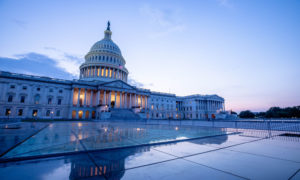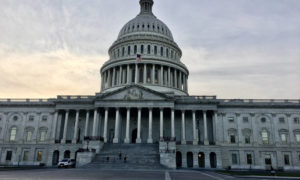What’s this? Associations Now Brand Connection provides advertisers with the opportunity to connect with the Associations Now audience. All content is paid for by the advertiser. The editors of Associations Now are not involved in the creation of this content.
Media companies, technology companies, and other organizations that deliver digital advertising and collect customer data – including associations – are creating a host of new tax burdens that are being felt in government homes across the country.
As the COVID-19 pandemic puts tremendous budgetary pressure on state and local governments, more and more states under severe financial constraints are trying to increase their revenues by taxing online advertising.
Internet advertising taxation could make a lot of money, but corporate groups strongly oppose the proposals, citing concerns about freedom of speech and the negative impact of the tax on businesses hit hard by the ongoing pandemic as well as news outlets that are heavy on revenue digital displays are dependent.
Maryland led the way in digital advertising tax plans, where the Democratic legislature tabled a proposal earlier last year to impose up to 10 percent excise tax on revenues businesses receive from selling digital ads for IP addresses in Maryland. Last spring, Maryland Governor Larry Hogan (R) vetoed the proposed advertising tax, which he believed was “misguided” and would likely be passed on to Maryland consumers. Earlier this month, state lawmakers passed the tax, overriding the governor’s veto. He attempted to raise about $ 250 million annually for local education reform initiatives.
The U.S. Chamber of Commerce, the Internet Association, and two other technology trading groups, NetChoice and the Computer and Communications Industry Association, quickly filed a lawsuit, arguing that Maryland’s tax was unfair as it only targets online advertising, not ads that appear in print or on television. Opponents also said the tax would violate Federal Perpetual Freedom Internet Tax Act, which prohibits states from imposing “discriminatory taxes on e-commerce.”
As this litigation unfolds, a dozen or so other states – including New York, Massachusetts, Indiana, and Washington – are considering ways to tax technology companies and other companies that advertise and collect consumer information online. New York lawmakers are taking a different approach to the same goal, proposing an excise tax on the sale of personal information that companies collect from every resident of the state who visits their websites. This proposed bill would affect not only large tech companies, but virtually every retailer that has a rewards program or otherwise tracks consumer preferences.
“In the past two years, there has been an explosion in the state-level proposed advertising and data taxes,” said Dan Jaffe, group executive vice president of the Association of National Advertisers. “These taxes are extremely damaging to businesses as they affect their ability to sell products and services, which is particularly damaging in the current economic climate.”
ANA has formed a broad coalition of organizations, including ASAE, to combat these proposals.
Share this article
We promise not to sell your email address.
 ASAE asks for guidance on 501 (c) (6) Access to PPPChris West and CAE
ASAE asks for guidance on 501 (c) (6) Access to PPPChris West and CAE Congress addresses 501 (c) (6) Requirements in the COVID-19 stimulus package at the end of the yearChris West and CAE
Congress addresses 501 (c) (6) Requirements in the COVID-19 stimulus package at the end of the yearChris West and CAE COVID-19 relief talks are gaining new lifeChris West and CAE
COVID-19 relief talks are gaining new lifeChris West and CAE
ADVERTISING
‘); } if (browName! = ‘Netscape’) {document.write (”); } // -> We promise not to sell your email address.
ADVERTISING
‘); } if (browName! = ‘Netscape’) {document.write (”); } // ->
ADVERTISING
‘); } if (browName! = ‘Netscape’) {document.write (”); } // ->